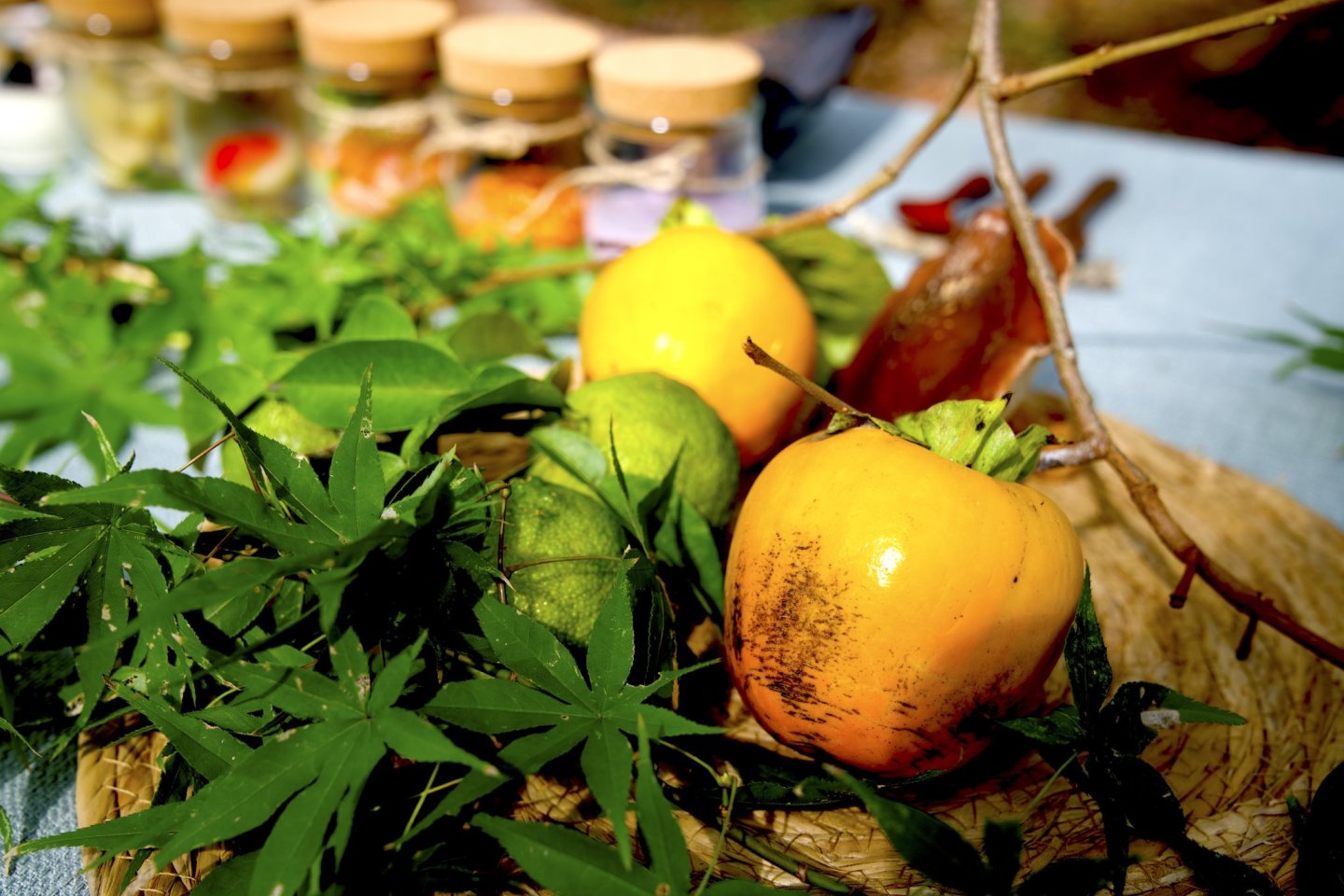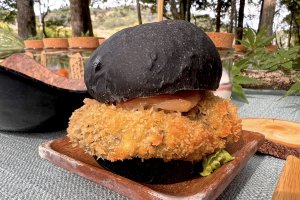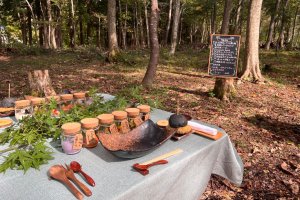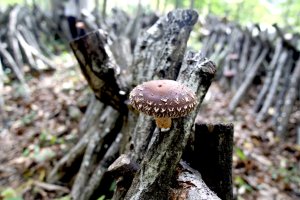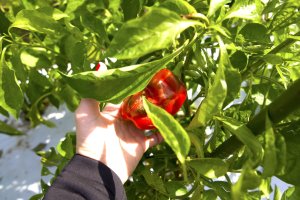At the northern tip of Hyogo Prefecture, and less than a 3-hour scenic ride from central Kansai, you’ll find Toyooka, a city full of charm. Home to the famous Kinosaki Onsen hot springs, Japan’s most thriving bag manufacturing town, exclusive accommodations, and plenty of top-quality seafood, there are more than a thousand reasons to visit this scenic city. But more recently, Toyooka has also become home to one of the most exclusive culinary experiences a foodie can ever dream of — a forest restaurant.
Inspired by the storks
If you arrive in Toyooka through Kounotori Tajima Airport, you’ll instantly notice that there’s something special about storks in this city — even the airport bears the name “konotori,” or “stork” in Japanese. This is not a coincidence. Before modern farming methods were introduced in Japan, the Toyooka area provided a safe home for the rare breed. Amid pressure for rapid economic growth and mass production in the post-war period, however, newly introduced farming practices, overuse of pesticides, deforestation and overhunting gradually led to a loss of habitat. In 1971, the last surviving Oriental White Stork vanished from the skies of Toyooka, leaving the locals with more than a few regrets, and a new mission for the future — restore safe agricultural practices to reintroduce the stork in the wild.
Thanks to years of communal effort and the introduction of pesticide-free farming methods, wetlands restoration, breeding programs, and the establishment of a safe and clean ecosystem, the storks were reintroduced in Toyooka in 2005. Today, there are about 300 oriental storks confirmed in the wild in Japan, and many of them can be seen flying around Toyooka.
The “farming methods that nurture storks,” however, did not only result in the return of the storks. It also helped introduce abundant pesticide-free local produce, which the locals and tourists can now enjoy and benefit from. There was also a significant change in how rice was produced in the area. Rice growing shifted to more organic production methods, and there were changes to when the paddies were flooded, as these are the largest food source for the storks. This resulted in the production of “stork-friendly” rice, or the local signature “konotori-mai” brand.
The recently launched “Forest Restaurant” culinary tour in Toyooka’s Kannabe Kogen (Highland) area aims to introduce the culture, stories and amazing tastes of these locally-grown and simple but exclusive foods.
Safe and ecological cuisine in a beautiful setting
The “Forest Restaurant” tour is part of a new tourism concept in Toyooka that aims to demonstrate the three pillars sustaining the city — the natural environment where storks thrive, the history and traditions intertwined with the storks, and the local community working towards sustainability for the storks.
The tour takes you to a small forest just outside the popular cafe-restaurant Agri Garden, nested amid farms and paddies. The table, upon your arrival, is beautifully decorated, the food is served in cute tiny bins, each bearing a handwritten tag with an explanation of the dish in it. The plates and cutlery are oh-so-gorgeous, perfectly fitting to a modern-day interpretation of an Alice in Wonderland scene. The sun is your only light here, and the breeze is your main companion.
The food makes use of locally-grown organic ingredients that are then cooked in various styles. Though the menu changes seasonally, upon our recent visit last autumn, we tasted a sweet potato cold soup, bell pepper pickles, maitake tempura, blueberry panna cotta, “konotori-mai” rice, and more, in addition to a giant vegetarian shiitake burger made with charcoal buns. The shiitake are grown in the same forest where you enjoy your meal and you can even occasionally buy a pack on your way home during the fall season.
The tour further offers the chance to go and pick the vegetables yourself, in an EV tuk-tuk, on a drive-through farming experience. You’ll also have the opportunity to meet local farmers, who will guide you through their farms and the stork-inspired methods of cultivating safe local food. During our visit, we stopped by two farms and picked leeks, bell pepper, cherry tomatoes and more. And while every dish on the table truly stood out, the king vegetable of the day was the leeks. Whether it was their freshness and juiciness, or the smoke coming from the slow grill under the open sky, I’ll never know, but the possibility of being that impressed by leeks was something that surprised me on its own.
Being out in the wild, sharing a moment of peace in the forest, surrounded by quality food in every meaning of the world, was a truly special experience. If you’re ever in the area, don’t miss trying it out.
